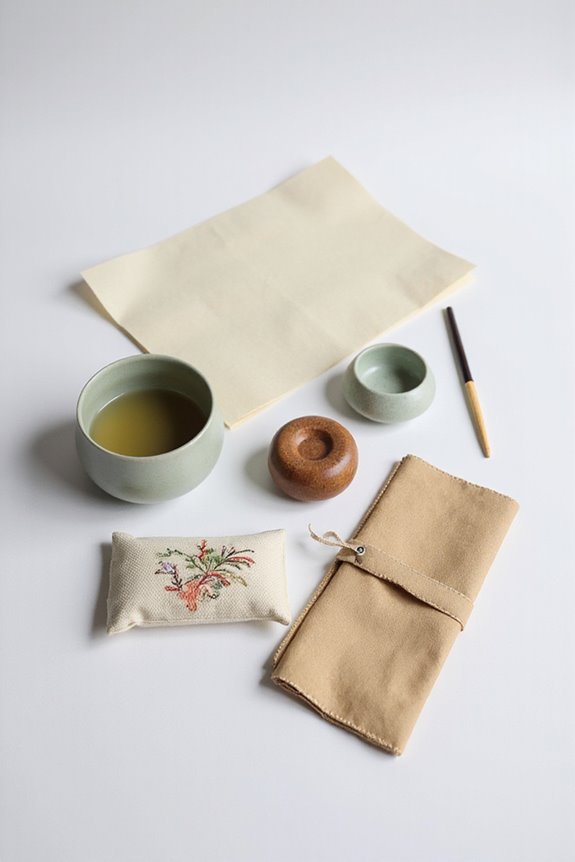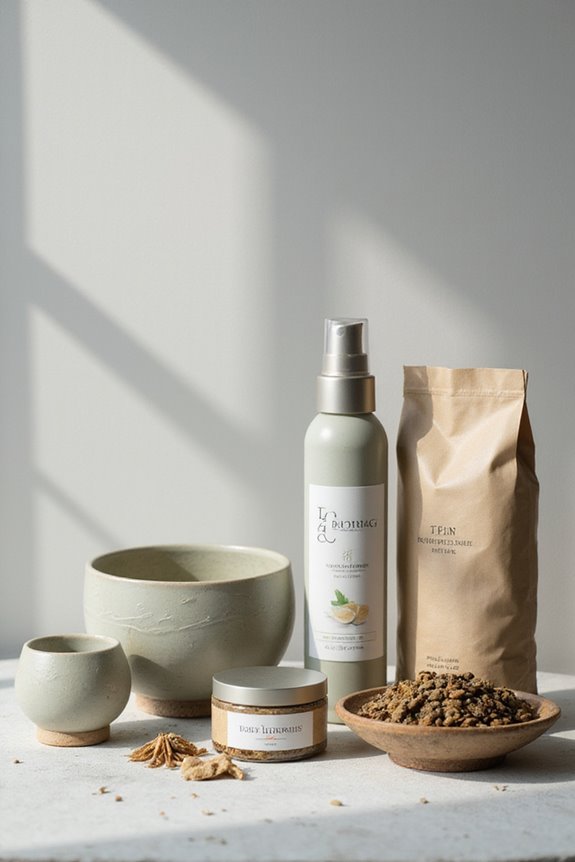Korean variety shows have evolved to include classics like *Happy Together* and *Running Man*, which set the groundwork for modern formats. Currently, trending shows include *Culinary Class Wars Season 2*, featuring amateur chefs competing against professionals, and popular dating formats like *Single’s Inferno*, which fosters genuine connections. Additionally, *Infinite Challenge* and *Running Man* remain staples in comedic and cultural categories. Exploring these popular programs provides insight into audience preferences and industry trends that drive viewership today.
Key Takeaways
- Popular dating shows include *Single’s Inferno*, which fosters connections in survival settings, and *Heart Signal*, emphasizing emotional authenticity.
- *Running Man* remains a fan favorite for its competitive games and comedic interactions.
- Long-running series like *Happy Together* and *National Singing Contest* are nostalgic staples in Korean variety television.
- Reality competition shows like “Culinary Class Wars Season 2” highlight amateurs facing off against professionals in engaging challenges.
- Innovative formats like *Love Catcher* and *EXChange* offer unique twists on romance and relationships, captivating diverse audiences.
Classic Korean Variety Shows
When exploring classic Korean variety shows, we can see how they have laid the foundation for today’s entertainment landscape. The genre began in the 1960s with music-oriented programs, evolving greatly over the decades. Nostalgic favorites, such as *Happy Together*, became hallmarks of Korean broadcasting, combining talk and comedy. Other iconic shows like *Running Man* and *Infinite Challenge* defined the 2000s and 2010s, showcasing the shift from musical talent to interpersonal dynamics. Additionally, *National Singing Contest*, which first aired in 1980, remains Korea’s longest-running program, reflecting enduring public interest. These classic formats not only entertained viewers but also launched careers for numerous entertainers and greatly influenced the reality shows we enjoy today.
Trending Reality and Competition Shows in 2025
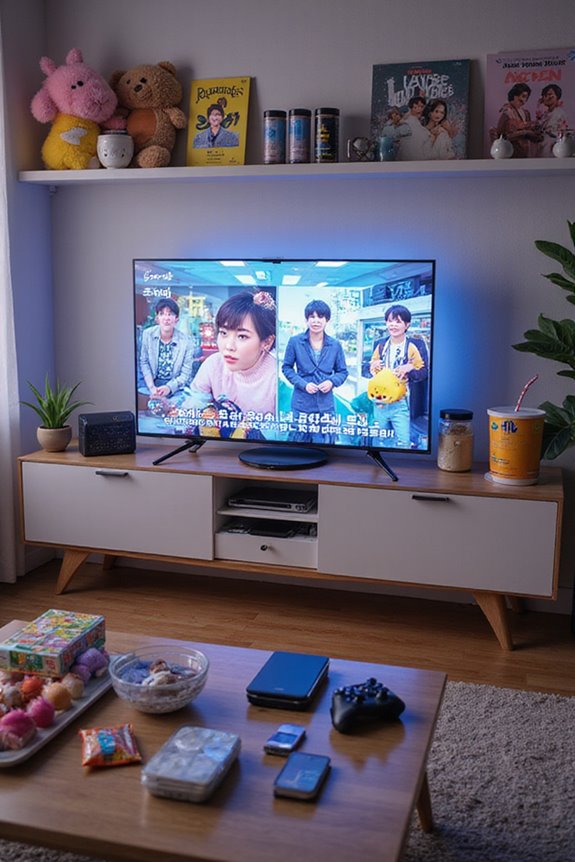
As the landscape of Korean variety shows continues to evolve, 2025 has seen a significant rise in reality and competition formats that captivate a diverse audience. Notable culinary competitions, like “Culinary Class Wars Season 2,” showcase amateur chefs pitted against professionals, adding layers of excitement and skill dynamics. Furthermore, shows such as “Single’s Inferno” and “Better Late Than Single” have successfully integrated sibling dynamics within their formats, encouraging family involvement in matchmaking processes. Streaming platforms like Netflix and Amazon Prime Video enhance accessibility, while traditional broadcasts maintain a loyal viewer base. As these shows blend competitive elements with personal relationships, they reflect changing audience preferences and the rising demand for fresh, engaging content in Korean variety television.
Popular Korean Dating Variety Shows
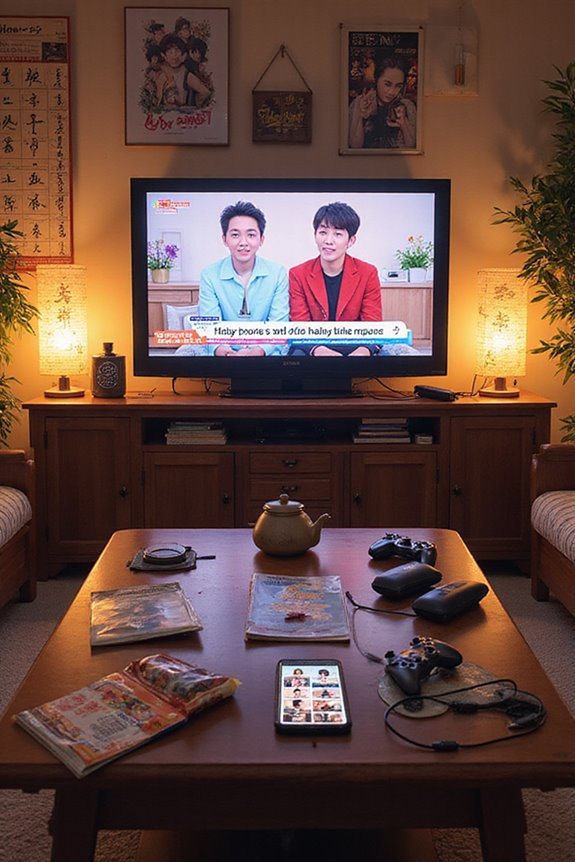
The evolution of Korean variety shows has naturally extended into the domain of dating formats, which have become increasingly popular in recent years. Shows like *Single’s Inferno* create intense relationship dynamics by placing singles in survival situations, fostering authentic connections before they reach a luxury finale. Meanwhile, *Heart Signal* captivates audiences through its anonymous communication style, emphasizing emotional authenticity while viewers speculate on potential matches. *Love Catcher* introduces a strategic twist, as participants balance romance with the quest for monetary gain. *EXChange* explores reconciliation among ex-couples, highlighting unpredictable emotional tensions. Finally, *Heart Pairing* focuses on deep compatibility discussions, prioritizing emotional connections over mere appearance. Collectively, these series illustrate the diverse approaches to modern dating reality television.
Comedy and Cultural Variety Shows
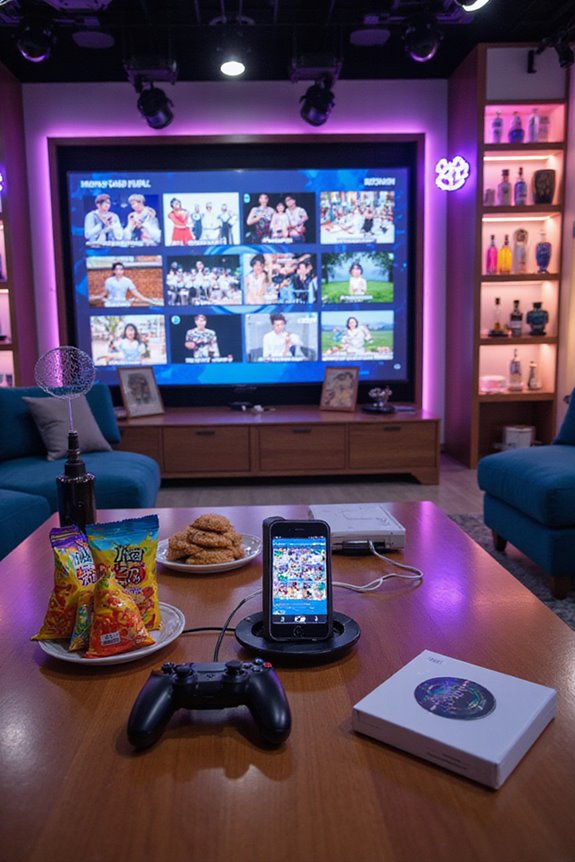
In contemporary Korean entertainment, comedy and cultural variety shows have emerged as essential platforms that blend humor with educational elements, reflecting both regional cultures and national identity. Shows like “Infinite Challenge” pioneered this genre with spontaneous challenges and humorous dynamics, while “Running Man” attracts viewers through competitive games and slapstick comedy. “New Journey to the West” employs cultural parody, engaging audiences with its mythical references, and “2 Days 1 Night” highlights local traditions combined with comedic situations. Additionally, “The Great Escape” integrates adventure with humor, showcasing problem-solving efforts amid cultural elements. These variety shows collectively represent a dynamic fusion of entertainment and cultural education, appealing to both domestic and international viewers.
Noteworthy Variety Show Formats and Themes
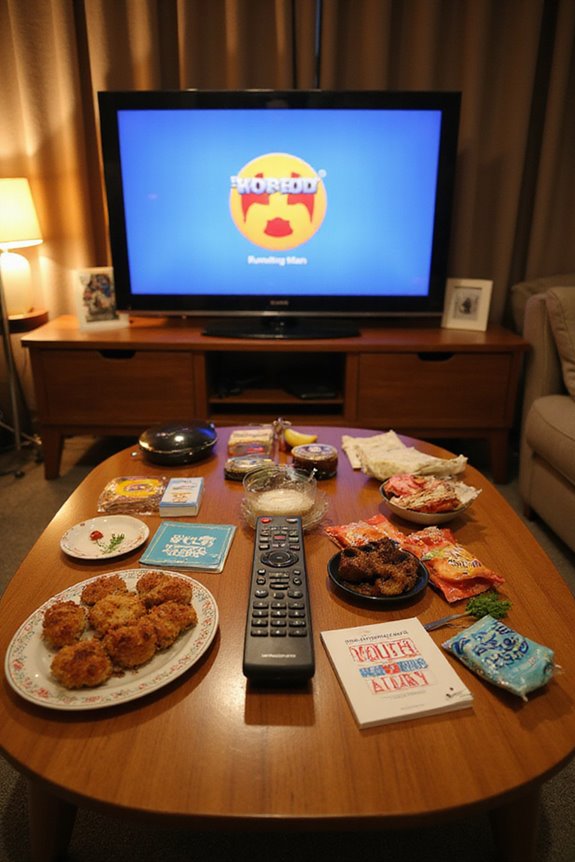
Variety shows in Korea are characterized by a diverse range of formats and themes, appealing to varying audience interests while often blending multiple genres. Remarkable survival challenges push contestants into extreme scenarios, like “2 Days 1 Night,” where participants compete for necessities, highlighting both physical and mental stamina. Cooking competitions have evolved, as seen in shows like “Please Take Care of My Refrigerator,” mixing culinary skills with dramatic elements while celebrity interactions enhance viewer engagement. Additionally, game formats, such as “Amazing Saturday,” emphasize trivia and cultural knowledge through fun challenges. Each of these themes not only entertains but also deepens audience connections, showcasing the dynamic nature of Korean variety programming.
Platforms and Accessibility of Korean Variety Shows
As interest in Korean variety shows continues to grow, numerous platforms now make these engaging programs accessible to international audiences. Viki and Netflix stand out, offering popular shows like “Running Man” and “Physical: 100” with high-quality English subtitles. TVING provides exclusive content, though it often requires a VPN for international viewers. OnDemandKorea and YouTube also host a variety of shows, catering to diverse tastes. These streaming platforms prioritize audience engagement by offering multilingual subtitles and mobile apps for easy access. However, challenges exist, such as geo-restrictions and subscription fees, which can limit access. Overall, the increasing availability of Korean variety shows reflects a significant trend in global entertainment preferences.
Frequently Asked Questions
Are There Any Upcoming Korean Variety Shows in Development?
Just like seeds sprouting from fertile soil, upcoming shows are in development, reflecting trends of competition and connection. We’re excited about what’s blooming on platforms, each show a unique story waiting to unfold.
Who Are the Most Famous Hosts in Korean Variety History?
When we think about famous hosts in Korean variety history, Yoo Jae-suk’s humor and charisma shine, while Kang Ho Dong’s dynamic style and Kim Hee Chul’s charm add to their unique hosting styles and legacies.
What Impact Have Korean Variety Shows Had on Global Entertainment?
Imagine vibrant laughter and endearing challenges crossing borders; we’ve seen Korean variety shows spark cultural exchange and global influence, uniting diverse audiences through humor, innovation, and unforgettable moments that reshape entertainment worldwide.
How Do Korean Variety Shows Differ From Western Counterparts?
Korean variety shows differ from Western counterparts through cultural differences, blending genres and focusing on audience engagement. Their unscripted moments and emotional connections create a unique viewing experience we all enjoy together.
Are There Any Korean Variety Shows Based on True Stories?
Yeah, there’re Korean variety shows using real-life adaptations and documentary formats. For instance, “Kian’s Bizarre B&B” blends genuine guest experiences with humor, while “Infinite Challenge” immerses cast in actual scenarios, showcasing everyday life interactions.



